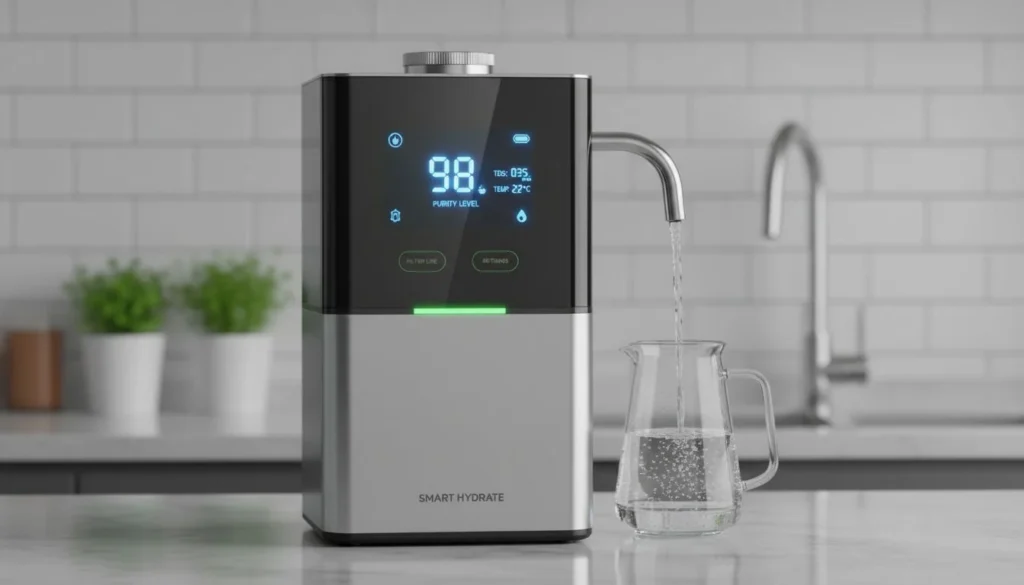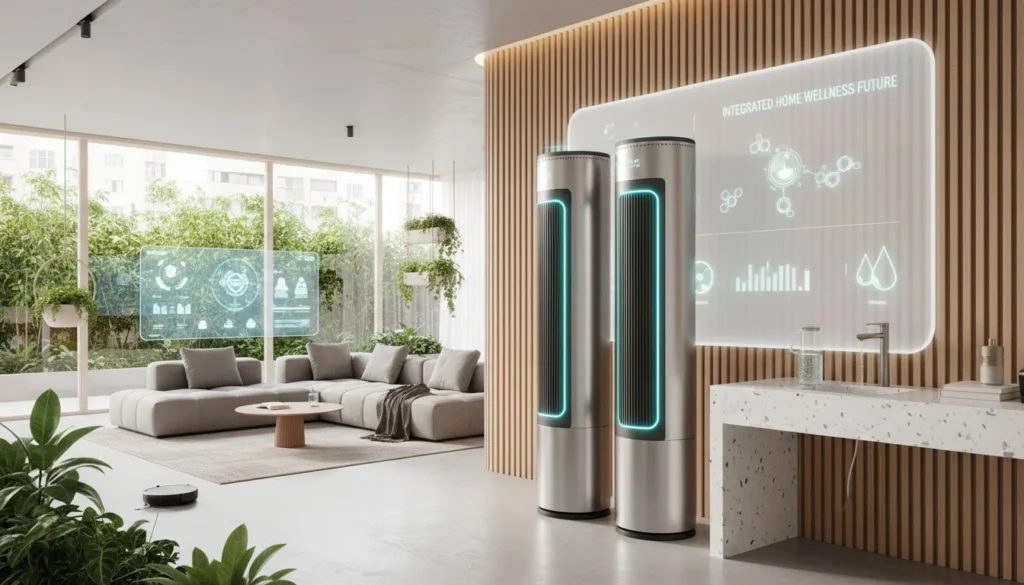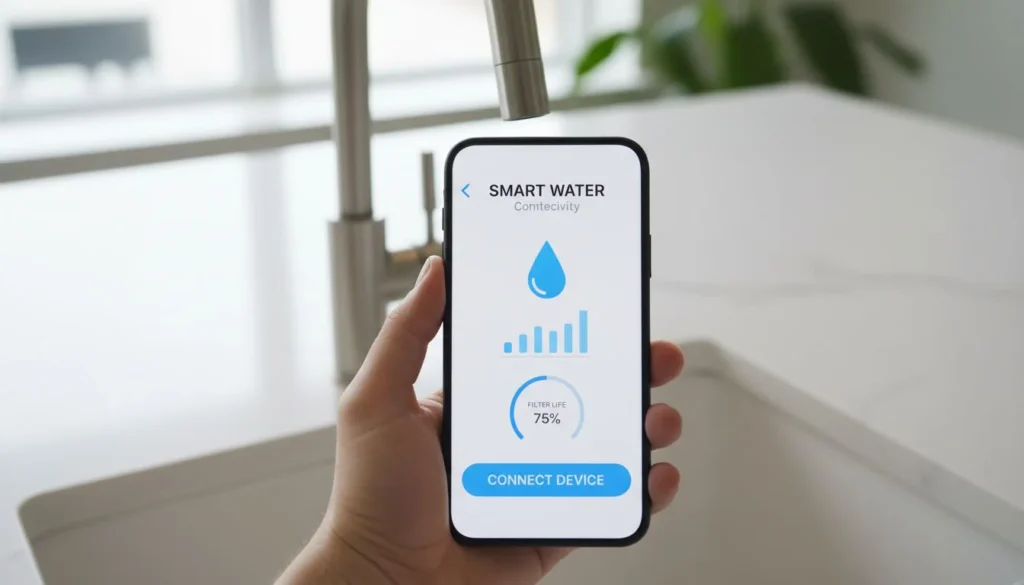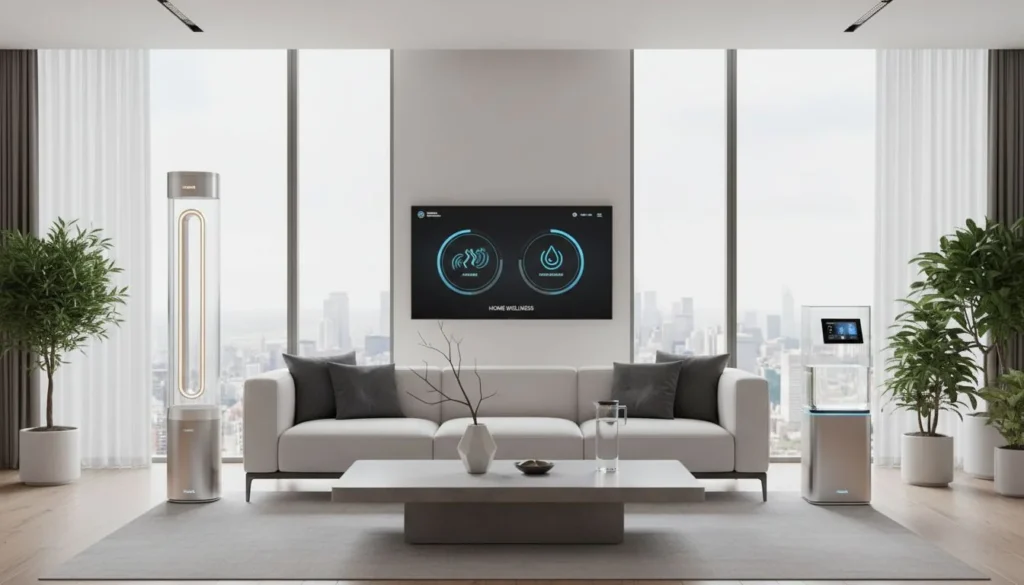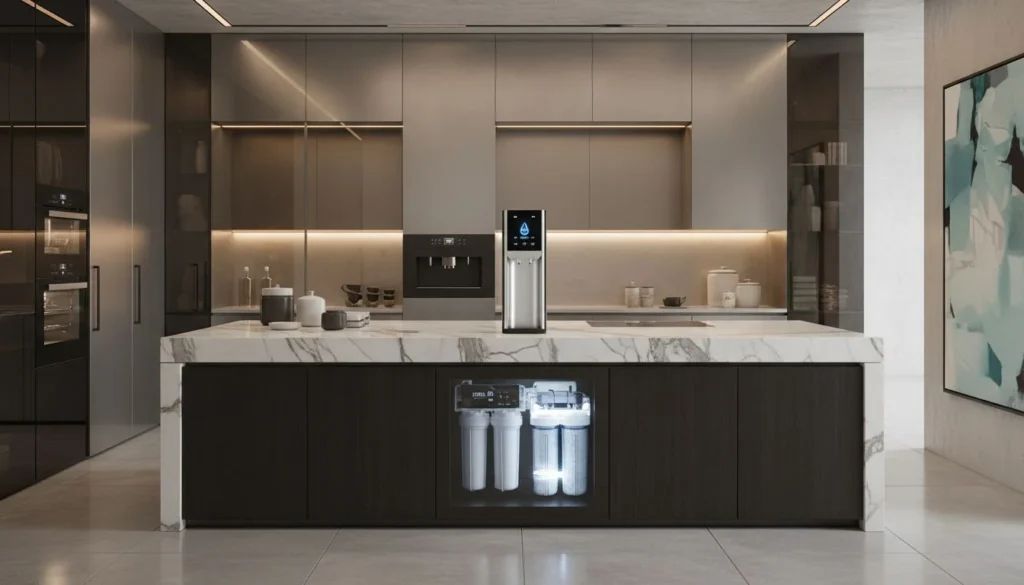
Locating the best custom filter producer might seem extremely difficult, like searching for a needle in a haystack. Believe me, it does not need to be overwhelming!
Look for trustworthy custom filter manufacturers on websites such as Google or Alibaba.com. Check how fast they respond and how easy they are to talk to. Assess their experience in the industry. Review their processes for checking quality. It's important they match what you specifically require. It's very crucial.
I remember when I first had to find custom filters for my project. The choices seemed countless. I didn't know where to begin. Through trial and error, I found that searching platforms like Google and Alibaba.com might uncover good suppliers. Checking their communication style and industry experience became essential. A responsive supplier often means easier collaboration later. This is important. In this blog post, I share insights that helped with choosing the correct custom filter manufacturer.
Researching suppliers on Google is essential for finding manufacturers.True
Using search engines like Google helps locate potential custom filter manufacturers effectively.
Quality assurance processes are irrelevant in selecting manufacturers.False
Quality assurance is crucial for ensuring that the products meet required standards.
What Key Factors Should You Consider When Choosing a Filter Manufacturer?
Choosing the correct filter factory feels overwhelming. It is crucial for the success of your work. I understand that feeling. I know how it feels to navigate this significant choice. Let's look at the important things that helped me.
**Selecting the right filter manufacturer requires care. Quality assurance is crucial. Good communication is very important. Companies must provide customization options. Industry experience matters a lot. Value for money is really significant. Supply chain reliability is key. These aspects help find a reliable partner.The importance lies in finding partners who meet specific filtering needs.
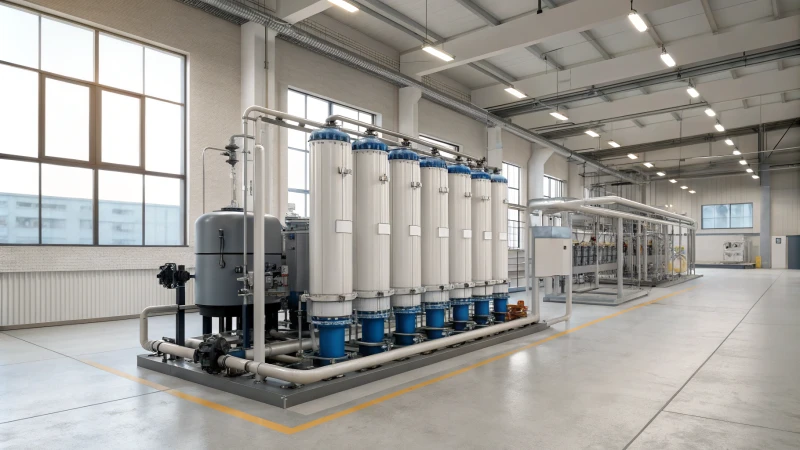
Quality Assurance
When I wanted to find a filter maker, I quickly noticed that it involved more than just choosing the first name I saw online. We’re not simply buying filters; we’re investing in the core of our operations. These important factors guided my choice.
Quality assurance was very important for me. I needed to trust that the products I chose worked well. My first meeting with a manufacturer showed me they cared about quality checks. This felt reassuring. HisoAir impressed me because they use labs to test their filters. They follow strict standards. Their reliable products gave me peace of mind.
Communication and Support
Communication really shaped my experience. At times, I had urgent questions. I valued suppliers who responded quickly. They were open to discussing my needs. This relationship with my supplier was invaluable during busy times. Websites like Alibaba1 helped me find suppliers with good reviews known for their support.
Customization Capabilities
Every business probably has unique needs. A manufacturer offering customization changed everything for me. My operations required specific filters. HisoAir was excellent at making personalized solutions for higher efficiency. Understanding their custom processes showed me how they perfectly met my needs.
Experience and Reputation
Experience and reputation tell a lot about a manufacturer’s reliability. I searched for partners with strong backgrounds. Working with famous brands like Camfil and Philips showed their focus on quality and innovation. Learning about a manufacturer’s past gave me valuable insights into their skills.
| Manufacturer Name | Years in Business | Notable Clients | Quality Certifications |
|---|---|---|---|
| HisoAir | 20 | Camfil, 3M | ISO 9001 |
| Brand X | 15 | BlueAir | ISO 14001 |
| Brand Y | 10 | Alen | CE Mark |
Cost vs Value
Initially, I thought price was the most important factor. Later, I realized value mattered more. Lower prices sometimes meant lower quality or service. This wasn’t worth it long-term. I learned to look at the total cost. High-quality filters saved money through better performance and fewer replacements.
Supply Chain Reliability
Reliable supply chains are essential today. I evaluated manufacturers’ abilities in lead times and order processes. Conversations about disruptions helped prevent future problems, saving me from delays that could have ruined production plans.
In summary, I assessed quality assurance, communication, customization, experience, cost versus value, and supply chain reliability to choose a filter manufacturer. Each factor helped me find a partner who met my filtration needs well. It's a journey worth taking and I hope my insights help you find the right partner too!
Quality assurance is the top priority when choosing a manufacturer.True
Prioritizing quality assurance ensures reliability and compliance with industry standards, leading to better filtration performance.
Cost should be the only factor when selecting a filter supplier.False
Focusing solely on cost can compromise quality; consider value, durability, and service for optimal selection.
How Can You Assess the Quality and Capabilities of a Custom Filter Supplier?
Choosing the right custom filter supplier involves more than just numbers. Careful exploration reveals much about your business partner. Here is how I decide on this crucial matter.
**Evaluating the quality and abilities of a custom filter supplier is crucial. Responsiveness, technical knowledge, industry experience and a fair price-quality balance are important factors. Direct questions and reviews help check these factors effectively.
Understanding Supplier Communication
Good communication really matters when picking a custom filter supplier. I seek a partner who responds promptly and adjusts to my specific needs. Different methods of contact - like email, phone or chat - really improve the partnership.
I remember contacting several suppliers during my last project. Quickly and clearly responding suppliers left a lasting impression. They understood that time really matters in our industry. I now ask about response times early on to measure their efficiency; this habit has changed my approach significantly.
I also find it useful to explore best practices for supplier communication. Selecting a partner who values speed and clarity really simplifies the process.
Evaluating Technical Capabilities
A supplier's technical skills can either help or hinder your project. Exploring their manufacturing abilities and laboratory standards is crucial. Reliable suppliers have modern equipment and strict testing processes, assuring filter quality.
I once visited a manufacturer and saw their certifications displayed. This increased my trust in their quality control. Requesting documentation on their testing techniques is key, such as꞉
To deepen my understanding of technical evaluations, I often look into filter testing standards. These resources are very enlightening!
Supplier Experience and Reputation
In my experiences, a supplier’s time in the industry reveals much about their reliability. I always examine their business duration and their client quality. Working with known brands often signals trustworthiness.
For instance, learning that suppliers like HisoAir collaborated with brands like Camfil and 3M reassured me of their high standards. To assess reliability, I request case studies or client testimonials. Understanding how they solve problems while keeping quality is very useful.
Cost vs. Quality Considerations
Choosing the cheapest option is inviting, but I've realized quality should never be sacrificed. Low-cost suppliers might cut corners, affecting performance.
Creating a comparison table helps me judge potential suppliers based on various aspects꞉
This table helps me see cost versus quality trade-offs, aiding in smart decisions.
For further views on balancing cost and quality in supplier choice, I regularly consult cost-benefit analysis techniques. My experiences remind me that every decision is very significant in this field!**

Evaluating Supplier Communication
I look at how well a custom filter supplier communicates. Effective communication is crucial when selecting a custom filter supplier. You want a partner who is responsive and can adapt to your needs quickly. Look for suppliers that offer various communication channels, such as email, phone, and chat.
A reliable supplier should also provide timely updates on your orders and be open to discussing your specific requirements. For example, ask potential suppliers about their response times during initial inquiries. This can give you insights into their efficiency.
In addition, consider best practices2 for supplier communication to ensure you’re aligning with a partner that values promptness and clarity.
Assessing Technical Skills
I pay attention to their technical skills. The technical capabilities of a supplier are paramount in ensuring product quality. Examine their manufacturing facilities and laboratory standards. Suppliers should have modern equipment and rigorous testing procedures to guarantee the quality of custom filters.
For instance, a reputable custom filter manufacturer may showcase certifications or quality control measures they employ during production. Additionally, ask for documentation of their testing processes, including:
| Testing Type | Description | Frequency |
|---|---|---|
| Quality Testing | Ensures filters meet standards | Each production run |
| Performance Testing | Assesses filtration efficiency | Regular intervals |
| Compliance Testing | Verifies adherence to regulations | Annually |
To dive deeper into technical assessments, explore resources on filter testing standards3.
Importance of Experience in the Industry
Their experience in the industry is very important. A supplier’s experience in the industry is a strong indicator of their reliability. Research the length of time they’ve been in business and the types of clients they serve. Working with well-known brands can also signal trustworthiness.
For example, suppliers like HisoAir have partnered with major brands such as Camfil4 and 3M, which often indicates a commitment to high standards and quality control.
You might consider requesting case studies or testimonials from previous clients to understand how the supplier has addressed challenges in the past and maintained quality assurance.
Balancing Cost and Quality
The balance between cost and quality is crucial. While it’s tempting to choose the cheapest option, remember that quality should never be compromised. A low-cost supplier may cut corners that ultimately affect the performance of your custom filters.
Consider creating a matrix to evaluate potential suppliers based on various factors:
| Supplier Name | Price | Quality Rating | Communication Score | Experience |
|---|---|---|---|---|
| Supplier A | $300 | 4/5 | 5/5 | 10 years |
| Supplier B | $250 | 3/5 | 3/5 | 5 years |
Utilizing a comparison table helps visualize trade-offs between cost and quality, ensuring informed decisions.
For more insights on balancing cost and quality in supplier selection, check out cost-benefit analysis techniques5.
Gathering Insights Through Direct Communication
I gather very useful insights by talking directly with them. Reviews also help me understand their practices; reviews are very informative.
Effective communication is vital for custom filter suppliers.True
Responsive suppliers adapt quickly to needs, ensuring smooth collaboration.
Choosing the cheapest supplier guarantees high-quality filters.False
Low-cost options may compromise quality, risking product performance and reliability.
What Are the Benefits of Working with Established Brands in the Filter Industry?
Have you ever thought about how joining forces with well-known brands in the filter industry could change your business? Established brands often help your operations grow and improve your products. This partnership might really transform your business.
Partnering with well-known brands in the filter industry increases reliability. It provides a way to use advanced technologies. Compliance with industry standards remains important. This partnership builds customer trust through proven performance. Collaboration leads to better product quality. It also results in greater operational efficiency.

Better Reliability and Quality
Working with well-known brands in the filter industry is a big change in business. I remember partnering with a famous brand and feeling a real difference. It is about being reliable, innovative, and trustworthy. These are very important in today's tough market.
For instance, companies like HisoAir have partnerships with big names such as Camfil6 and 3M7, which ensures that they adhere to stringent quality standards. This relationship not only guarantees consistent product quality but also instills confidence in customers.
Access to New Technologies
Innovation often seems like just a word. But established brands give access to the latest technologies. I clearly remember HisoAir’s Decibel Cancellation™ technology. It changed our air purifiers. It wasn’t just about lowering noise; it was about creating a peaceful and enjoyable user experience.
| Technology | Brand | Benefit |
|---|---|---|
| Decibel Cancellation™ | HisoAir | Quieter operation |
| High-Efficiency Filters | Camfil | Superior air purification efficiency |
| Smart Filtration Systems | 3M | Automated monitoring and control |
When we received positive customer feedback, I felt like we accomplished something really special.
Stronger Supply Chains
A strong supply chain really affects customer satisfaction. Working with famous brands improved our delivery times. Their big networks gave us timely access to materials and products. This was crucial when meeting customer needs.
When businesses partner with reputable suppliers, they benefit from the stability and reliability of a well-established network, which can be a game-changer in competitive markets.
Meeting Industry Standards
Regulatory compliance can be challenging. Partnering with well-known brands made it easier for me. Their commitment to industry standards reduced worries about reworks or fines. Aligning with brands holding ISO certifications increased our market credibility, making attracting new customers simpler.
Proven Track Record
A proven track record holds undeniable power. For example, HisoAir has been improving its products for over 20 years by using valuable customer feedback.
By leveraging such established reputations strengthened our market position; our customers trusted us because they saw we meant quality and performance.
In conclusion, working with famous brands in the filter industry offers great benefits: it improves quality and provides access to new technologies while building strong supply chains that make a significant impact on business operations.
Established brands ensure higher product quality and reliability.True
Working with established brands enhances product reliability due to their perfected manufacturing processes and stringent quality control measures.
Collaboration with known brands guarantees compliance with standards.True
Partnering with established brands helps ensure adherence to industry standards, reducing the risk of non-compliance issues for businesses.
How Can You Foster Effective Communication with Your Chosen Manufacturer?
When I began working with manufacturers, I soon understood that good communication is the heart of a successful partnership. Here are some strategies that greatly changed my experience. These strategies might do the same for you.
Focus on understanding the manufacturer's communication style for effective conversation. Set clear expectations from the beginning. Use technology to have better conversations. Conduct regular meetings to check progress. Build trust by forming strong relationships. Document every conversation in detail.

Understand Your Manufacturer's Communication Style
Effective communication begins with understanding how your manufacturer prefers to communicate. Some manufacturers may prefer emails for documentation, while others might favor instant messaging for quick updates. It's essential to establish a mutual understanding early on.
You can assess their communication style by asking questions like:
- What is your preferred method of communication?
- How often do you provide updates?
- Who will be my main point of contact?
This approach ensures that both parties are aligned, reducing the chances of miscommunication.
Set Clear Expectations and Goals
Before entering into a contract, it is crucial to outline your expectations and goals clearly. This includes timelines, deliverables, and quality standards.
| Consider creating a communication plan that includes: | Item | Description |
|---|---|---|
| Frequency of Updates | Weekly, bi-weekly, or monthly updates depending on project size | |
| Response Times | Set specific times for responses to inquiries | |
| Quality Checks | Define milestones for quality assessments |
By doing this, you create a framework that helps keep everyone accountable and informed.
Utilize Technology for Communication
In today's digital age, leveraging technology can significantly enhance communication with your manufacturer. Tools like project management software can streamline updates and keep track of progress in real-time.
Consider using platforms like:
- Slack for instant messaging.
- Asana for task management.
- Zoom for face-to-face meetings.
These tools can help maintain clear lines of communication, ensuring that all team members are on the same page. For more insights on project management software, check out this guide8.
Regular Check-ins and Feedback Loops
Establishing regular check-ins can help preempt potential issues and keep projects on track. Schedule these meetings at intervals agreed upon in your initial discussions. During these check-ins, review progress and solicit feedback from both sides.
- Agenda Suggestions:
- Review project status.
- Address any challenges faced.
- Discuss upcoming deadlines.
This proactive approach fosters an open line of communication and helps build trust between you and your manufacturer.
Build a Relationship Based on Trust
Communication is not just about exchanging information; it’s also about building relationships. Invest time in understanding your manufacturer's business, culture, and challenges they face in the industry. This understanding can lead to a stronger partnership where both parties are willing to collaborate effectively.
To further strengthen this relationship, consider:
- Regularly expressing appreciation for their efforts.
- Being transparent about your own challenges and constraints.
- Engaging in informal conversations to foster camaraderie.
This will not only improve communication but also enhance collaboration on future projects.
Document Everything
Finally, documentation is key in ensuring effective communication. Keep records of all communications, agreements, and updates. This serves as a reference point for both parties and can help resolve disputes if they arise.
Using tools like Google Docs or shared drives can facilitate easy access to important documents. For more tips on effective documentation practices, see this article9.
Understanding your manufacturer's communication style is essential.True
Recognizing how your manufacturer prefers to communicate helps reduce miscommunication and aligns expectations effectively.
Regular check-ins can prevent project issues with manufacturers.True
Scheduling consistent meetings allows for progress reviews and timely feedback, fostering smoother project management and collaboration.
Conclusion
This guide outlines effective strategies for selecting reliable custom filter manufacturers by evaluating quality assurance, communication, customization options, industry experience, and supply chain reliability.
-
This link offers insights into essential criteria for selecting filter manufacturers, ensuring you make an informed decision that aligns with your business needs. ↩
-
Exploring this link will provide insights on evaluating suppliers effectively, ensuring you make informed decisions in your procurement process. ↩
-
This resource will enhance your understanding of filter testing standards, which are vital for assessing supplier quality. ↩
-
This article discusses strategies for balancing cost and quality when selecting suppliers, crucial for long-term success. ↩
-
A thorough guide on conducting cost-benefit analysis to aid in supplier evaluations will enrich your decision-making process. ↩
-
Explore insights on how established brands enhance operational efficiency and product quality for your business. ↩
-
Learn about the latest filtration technologies and how they can improve your product offerings. ↩
-
This link provides practical strategies to improve supplier relationships through effective communication techniques. ↩
-
Explore this article for detailed documentation practices that can enhance your communication with manufacturers. ↩


